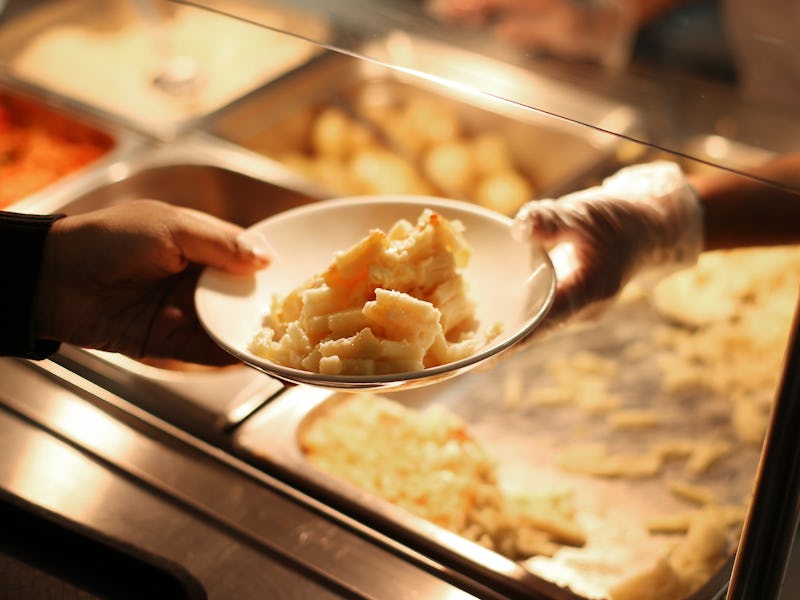Schoolkids Have a 'Black Market' for Salt in Lunchrooms, and First-World Problems
This cannot be the worst thing we have to deal with.

Of all the problems American public schools can endure, be it insufficient funding, bad teachers on tenure, or teaching kids the wrong shit, healthy eating takes a backseat. It’s an important issue, there’s no question, but if kiddos want a little spice in their chickpea sliders, what’s the worst that can happen? It’s not as if they’ll create their own black market for seasonings.
Except that, according to testimony from John S. Payne of the Blackford County School Board of Trustees in Indiana, that’s exactly what happened.
“Perhaps the most colorful example in my district is that students have been caught bringing — and even selling — salt, pepper and sugar in school to add taste to perceived bland and tasteless cafeteria food,” Payne wrote. “This ‘contraband’ economy is just one example of many that reinforce the call for flexibility.”
Contraband. Salt and pepper are contraband. If this is a major issue in our public schools, we as a civilization can declare victory. We’ve won.
First Lady Michelle Obama’s Healthy, Hunger-Free Kids Act of 2010 was a federal law that aimed to make public school lunches less junky. Kids, who don’t like anything that doesn’t come out of a box or covered in ketchup, responded by tweeting (#ThanksMichelleObama) their least-favorite meals. And now, apparently, they’re rolling into lunch periods with dime bags of fleur de sel.
The more damning issue, if Payne’s sources are correct, is that kids might be so blanded-out that they’re skipping meals. He also said 55 percent of the Blackford County students who are eligible for free or reduced meals come from low-income housing, and some may be getting their best (or only) meal of the day at school. But since the food is “bland” or, based on the meals shared on Twitter, just not enough or enticing, kids just chuck them out. Since 2012, participation in the reduced meals in Blackford Count have decreased by more than half, and “with a rise in food waste.”
Payne believes the solution lies in “flexibility,” allowing school districts to have authority “to make adjustments honoring the spirit and intent of the law” so they can feed students with healthy — and decent — meals. Because you never know where an underground economy of flavors could lead.
“You got the goods?” Timmy asks across the table. The other kid, a renegade in a black hat, tosses a crumpled brown bag to Timmy’s feet. Inside, wrapped in clear sandwich bags, are the prizes. But Timmy isn’t getting this for free.
“Say my name,” the other kid bellows.
Timmy’s lower lip shakes. “You’re Heisenberg,” he says.
He sits still, eyes fixed like a predator.
“You’re goddamn right.”